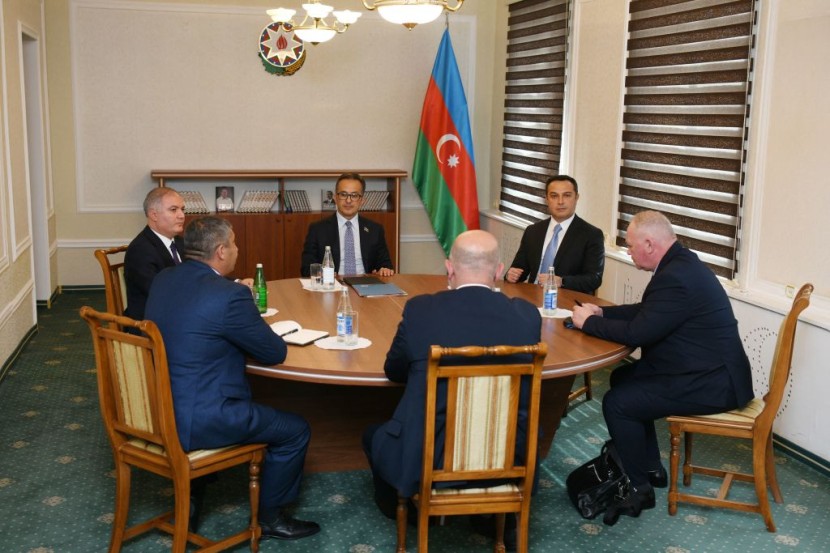
Negotiations between Azerbaijan and the ethnic Armenian region of Nagorno-Karabakh began Thursday (September 21) after Azerbaijani forces launched what reporters describe as a decisive blow to the self-styled Republic of Artsakh, forcing ethnic Armenian separatists to surrender and agree to return to the negotiating table on Baku's terms.
Officials in Yerevan have insisted they were not a party in the ceasefire or the negotiations. It could be recalled that Armenia was defeated in the Second Nagorno-Karabakh War in 2020, which severed Artsakh's land bridge to most of Armenia. Prime Minister Nikol Pashinyan also warned that Azerbaijan was seeking to drag Armenia into another conflict.
The Guardian reported that Thursday was also the anniversary of Armenia's independence day, and Pashinyan addressed the nation that they should be "free of conflict" for the sake of its independence, without mentioning Nagorno-Karabakh.
Meanwhile, protesters gathered the night before (Wednesday, September 20) to denounce the Armenian government's failure to protect ethnic Armenians in the enclave.
Fall of Armenian Karabakh Imminent?
Video published by Azerbaijani media showed the delegation from Armenian Karabakh accompanied by Russian peacekeepers in a meeting at the city of Yevlakh after a ceasefire was announced Wednesday (September 20), which stipulated that ethnic Armenian fighters would surrender and disband.
The Stepanakert delegation was led by Artsakh state minister Artur Harutyunyan, who wore a military uniform, while the Baku contingent was led by Azerbaijani parliamentarian Ramin Mammadov.
The talks would determine the fate of around 120,000 ethnic Armenians in the disputed territory, which already saw two wars and a months-long blockade as they continue as an ethnically Christian minority in an enclave that is internationally recognized as Azerbaijani territory, a nation that is predominantly Muslim and Turkic.
However, David Babayan, adviser to Artsakh President Samvel Shahramanyan, told Reuters that Karabakh Armenians need security guarantees before total capitulation.
"We have an agreement on the cessation of military action but we await a final agreement - talks are going on," he said.
Read Also : Azerbaijan Allows Supplies, Aid Into Armenia's Nagorno-Karabakh Region After 9-Month Blockade
Armenian Officials Warn of Ethnic Cleansing
Officials in both Stepanakert and Yerevan have warned that Azerbaijan is undertaking a campaign of ethnic cleansing by seeking to drive out the tens of thousands of remaining ethnic Armenian residents of the region.
During the United Nations General Assembly this week, Armenian foreign minister Ararat Mirzoyan reported that the whole population of the Armenian enclave was "currently facing an existential threat to their lives."
On the other hand, Azerbaijani president Ilham Aliyev made a televised address that his country wanted to discuss the reintegration of Karabakh into the rest of its territory as he accused the ethnic Armenians of "[forgetting] that they live in Azerbaijan" and that he restored the country's sovereignty "with an iron fist."
Aliyev Apologizes to Putin for Russian Casualties
Meanwhile, the Russian defense ministry issued a statement that they were accommodating over 5,000 Armenian residents at an airport near Stepanakert which has been used as a base by Russian peacekeepers deployed as a result of the 2020 war. The Kremlin added that Aliyev contacted Russian President Vladimir Putin to apologize for the death of several Russian peacekeepers during this week's offensive, including Ivan Kovgan, the deputy commander of the Russian peacekeepers in Nagorno-Karabakh.
In the phone call with Aliyev, the Kremlin added that Putin also highlighted the importance of safeguarding the security and rights of ethnic Armenians in the breakaway region.
European Council president Charles Michel earlier urged Aliyev to protect the rights of ethnic Armenians in the region, as well as to "ensure full ceasefire and safe, dignified treatment by Azerbaijan of Karabakh Armenians."
"Their human rights and security need to be ensured. Access needed for immediate humanitarian assistance," he added.








